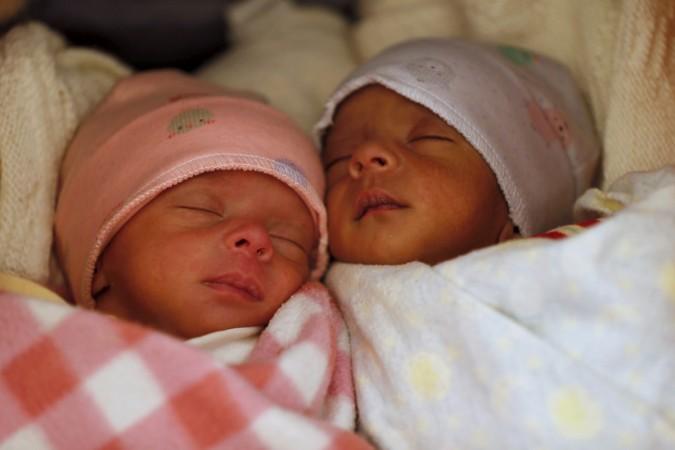
An Australian woman, who was told that she will never conceive, got pregnant with twins; but the two baby girls were born separately over a gap of 10 days.
Kate Hill believes that her conception was miraculous -- which is scientifically termed "superfetation." Kate giving birth is one of 10 unique cases of superfetation in the world.
In 2006, she was diagnosed with polycystic ovary syndrome which meant her ovaries weren't producing eggs and she had to undergo hormonal therapy.
The treatment that Kate underwent can be credited for the success of her pregnancy, despite having unprotected sex once over the ten-day span of giving birth to the first baby.
This was an unusual case of identical twins in which one fertilised egg divided into two embryos to form two babies with exact same genetic structure. Normally, when it's a twin delivery, the woman's ovaries release two different eggs at the same time which fertilise and develop as fraternal twins, BBC reported.
Last year, twin birth rate was reported to be the highest over the years in US, which was one twin birth per 29 babies. Experts stated that the rise in twin birth rate is majorly because of elder mothers as they are more capable of conceiving twins than younger mothers. They even said that in vitro fertilisation (IVF) and fertility drug consumption can raise the probability of twin births.
Kate's story of giving birth to the twins is unusual compared to the above scenarios as she ovulated post conceiving, which is very rare. Her ovaries released one egg which got fertilised and then another egg was released which got fertilised by the left over sperm inside her.
"This can cause a unique situation when a patient gets pregnant twice in the same fertility cycle, and create basically a twin pregnancy, but with two different embryos created by two separate sperm and two separate eggs a few days apart," Dr Tomer Singer, obstetrician-gynaecologist and director of reproductive endocrinology and infertility at Lenox Hill Hospital, was quoted as saying by BBC.
The delivery of babies in such rare cases generally doesn't have a gap more than a week.
"I've seen pregnancies that were spaced three days apart, and we don't know if maybe the two eggs were fertilised at the same time, but just took longer to implant in the uterus," said Dr Singer. "I've never seen a situation where a patient gets pregnant, and then 10 days later gets pregnant again in the same cycle. This is a very interesting case," he added.
The twins Charlotte and Olivia, now 10 months old, were born with different blood groups, weight and their delivery took place at different developmental stages.

















